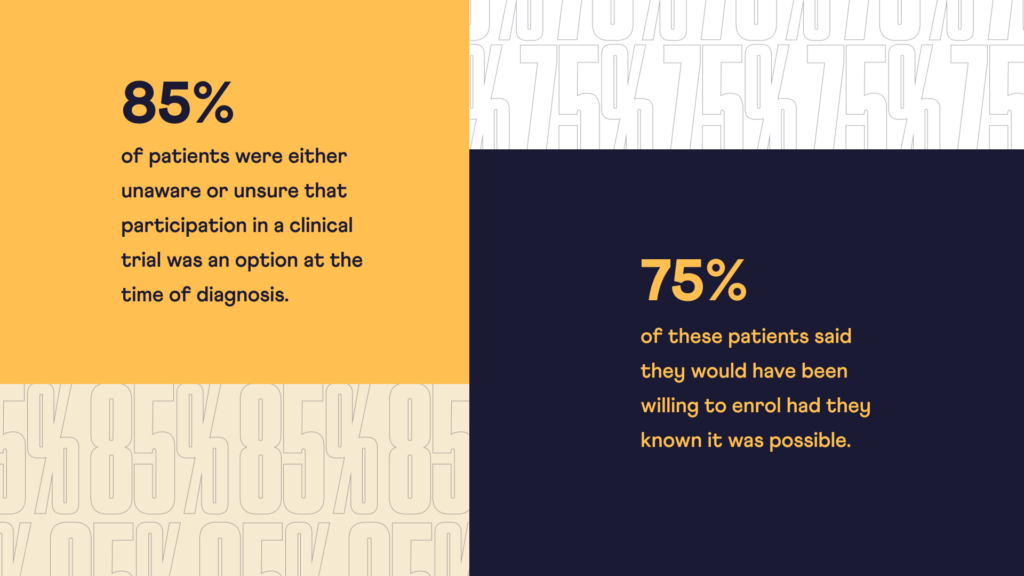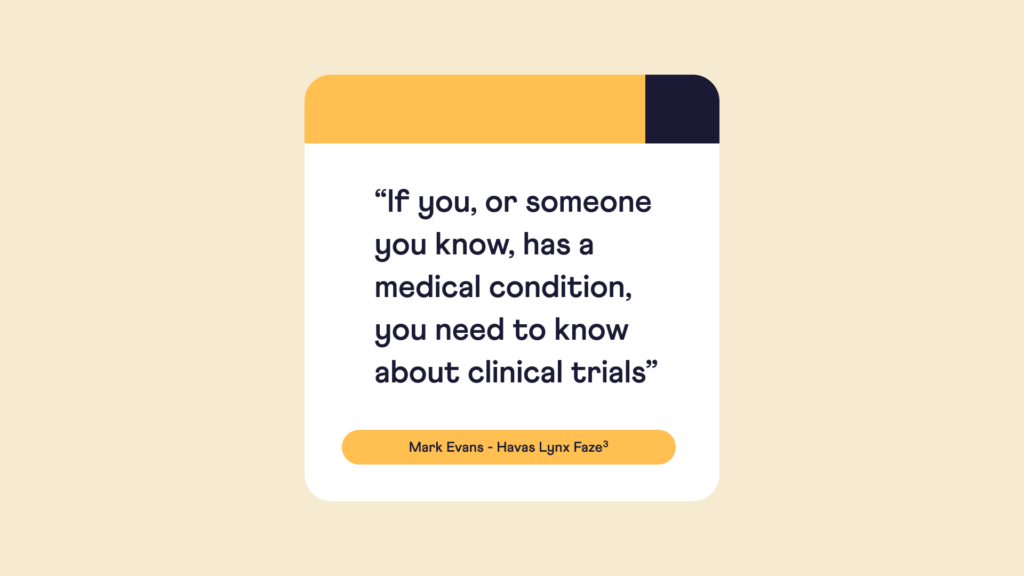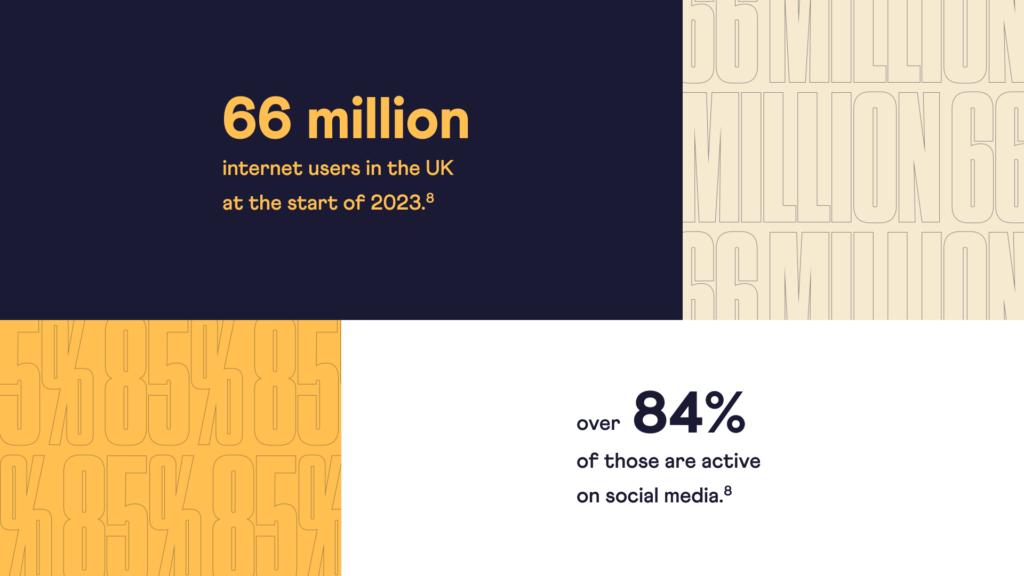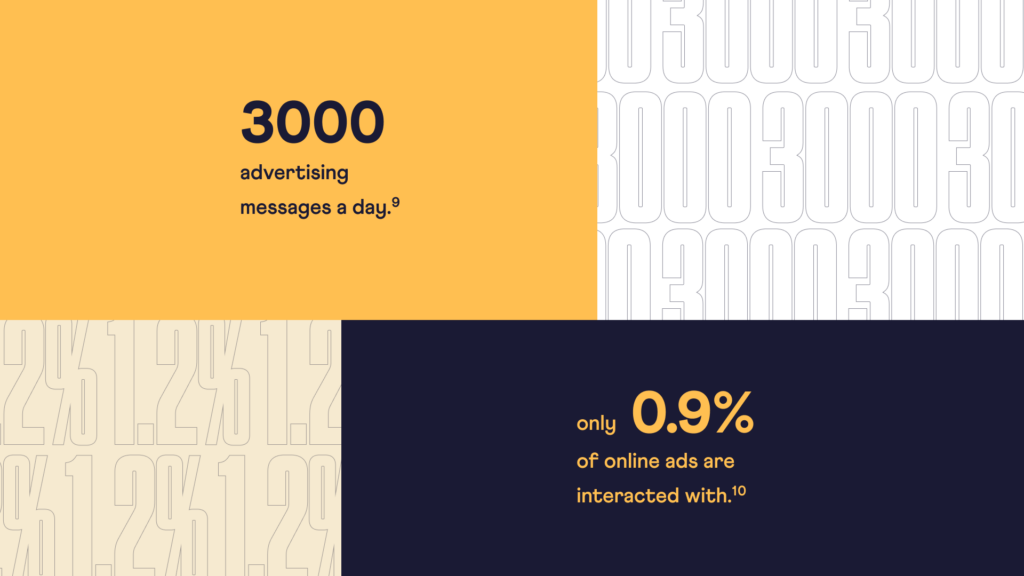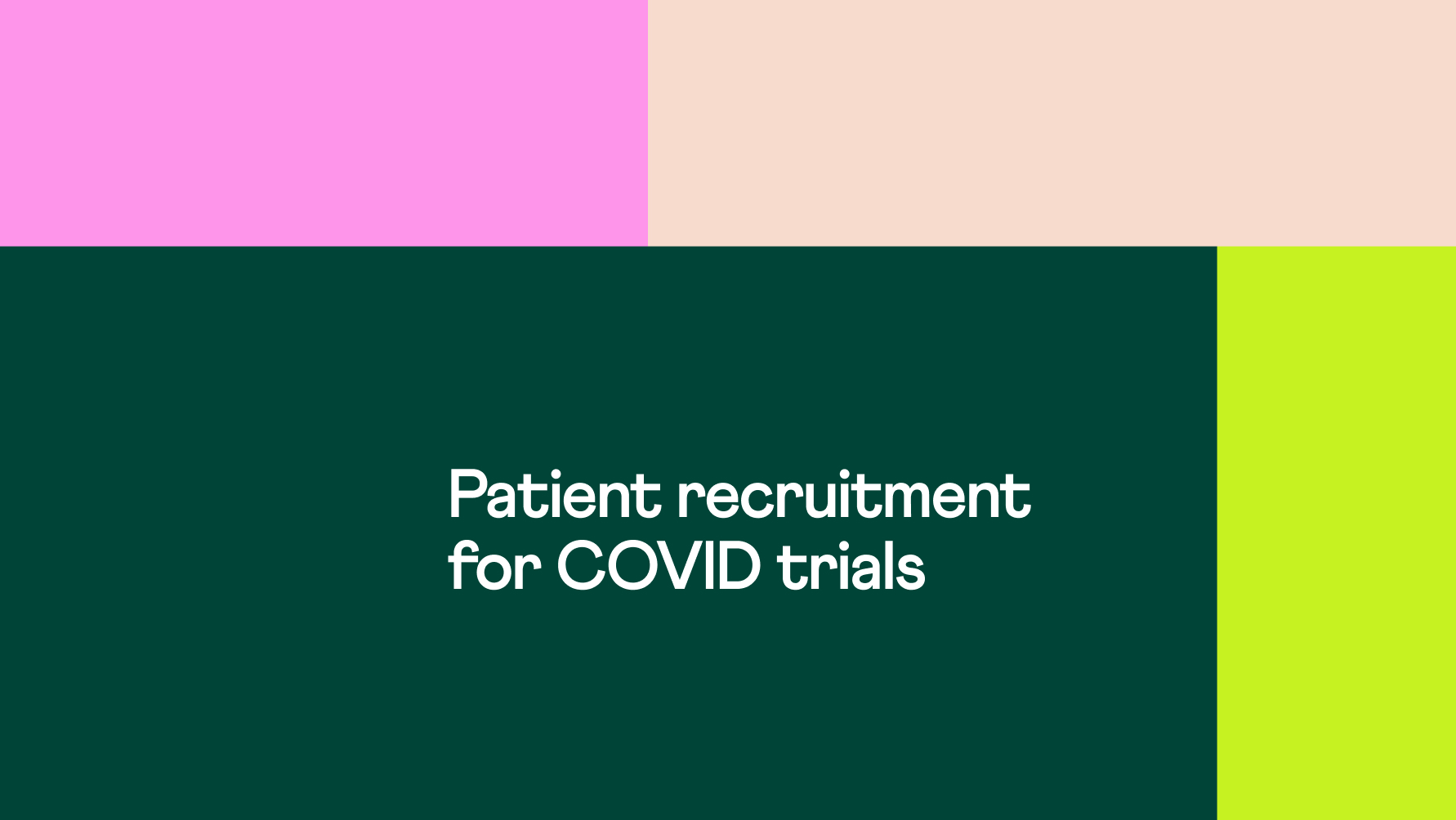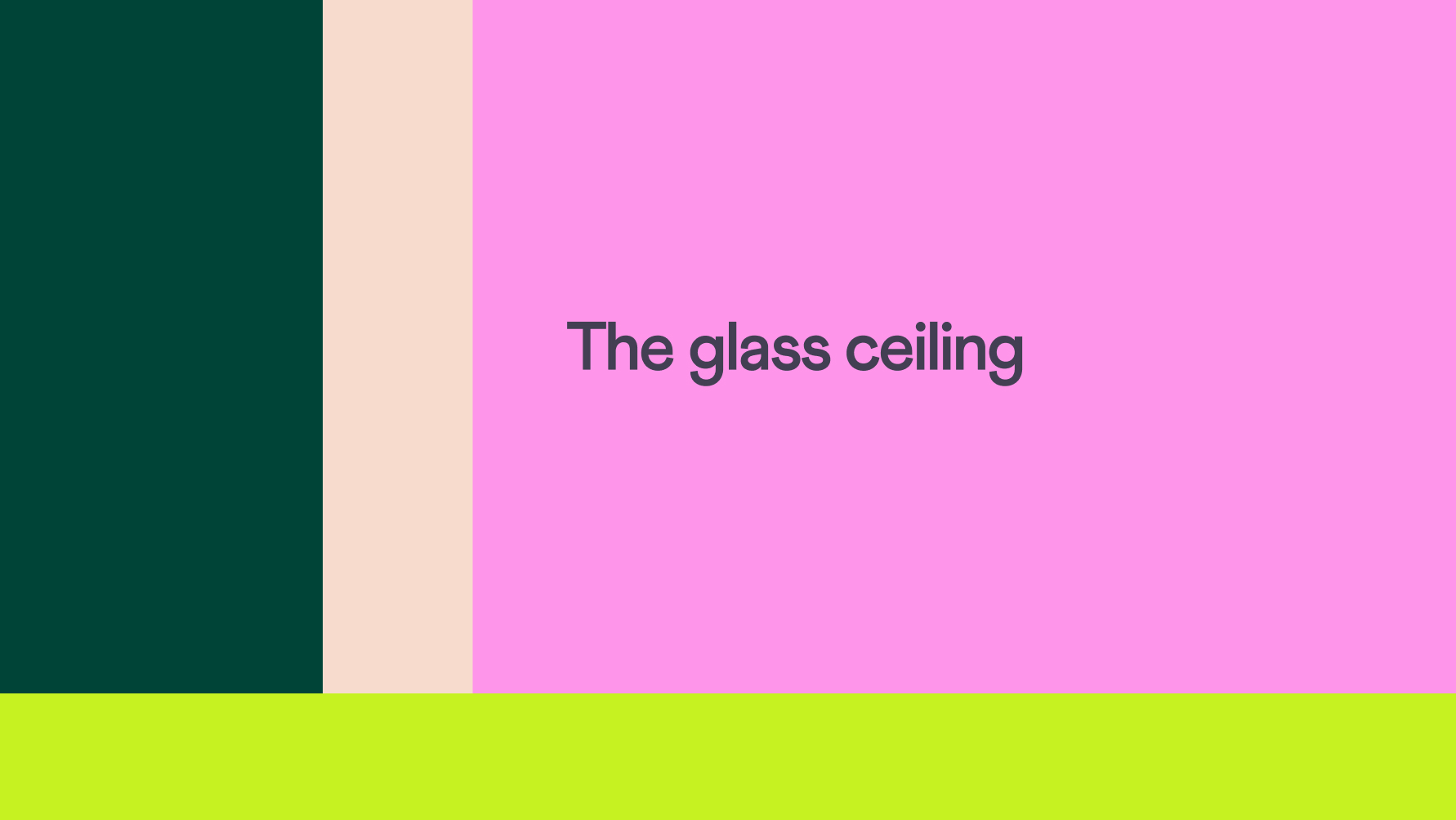
Alexa, what’s a clinical trial? The changing role of trial awareness in the digital age
The digital age has created more opportunities to engage with potential trial participants but the lack of awareness of clinical trials is still an issue we’re facing.
So, what needs to change?
Aware or Beware?
Depending on who you talk to, clinical trials could be best or worst thing you could mention. From COVID times, we know audience’s knowledge of clinical trials grew by 74%, according to a 2021 survey (1) in addition to magnifying the importance of including diverse populations in clinical research but there are still some out there who are unaware or untrustworthy of trials.
Awareness is key when we start telling the story about how clinical trials are not only relevant today, but actually essential when talking about improving health. The difficulty lays, however, with online misinformation, fake news and those who confine trials to the realms of science fiction.
But is it really that important? Statistics from a Harris Interactive survey show how crucial awareness of trials is for patients today (2).
For many, trials could be the missing bridge in their healthcare journey, yet time and time again, the very same trials aren’t able to find enough participants to move forward. Something is missing.
Red Pill or Blue Pill?
The Matrix may have been considered science fiction at the time, but today, healthcare technology has, remarkably, caught up with a few of the technical advancements featured in the pre-millennium film.
Things like holographics, which provide technicians with better imagery of organs for better testing and diagnosis (4), brain implants that provide people living with Parkinson’s relief from their uncontrollable tremors through deep brain simulation (DBS) (5) and research is ongoing with neural implant devices that allow us to better understand the wiring of the cerebrum and its connection to movement and memory (6).
These are some extreme examples, but it’s because of these advancements, and others like them, the digital healthcare options are where they are today.
But unlike some of the examples above, most clinical trials don’t make the news or get seen by the general population, it’s generally not a dinner table conversation. So, when are we giving people the opportunities to find out about clinical trials that could be an option for them or their loved ones? The answer may lie in the world of digital media.
The Low-Down on the Downloads
We’re living in the age of the e-patients and e-caregivers. Online communities, forums, and even Google gives users access to a wealth of information, allowing them to understand medical conditions and treatments (7).
In theory, the advancements made within digital age provide a perfect world to start make people aware of clinical trials and start conversations about what they are, why they’re relevant and how people can get involved.
As of today, there are a staggering:
From an engagement perspective, you might be thinking “Great!”, but building awareness isn’t as easy as clicking a few buttons; it’s said that the average person sees up to:
A noisy newsfeed might be the least of your worries. A study from the UK consumer group Which? found that 34% of fraudulent ads reported to Google, and 26% from Facebook, were never removed, with the same report also finding that 15% of those surveyed had fallen victim to a scam advert and reported it. (11)
But a survey from Antidote stating of 4,000 patients, advertising remains the foremost way that they hear about clinical trials. (12)
So, how can we cut through the noise to get patients (or more broadly, people), informed about clinical trials in a way that captures their attention? It can be tricky – but it’s a job that is essential to bring awareness of not only what a clinical trial is, but the benefits it could bring to patients on a level that everybody can understand.
How We Can Help
Awareness in a digital landscape is all about creating content that makes people sit up and take notice. It’s something at Faze, that has shaped our principles in order for us to ensure that.
- Empathise with a person’s experience in a unique way
- Show understanding, acknowledging people’s feelings
- Expresses our ideas in creative and memorable way
After crafting our messaging we then test and refine it, working with patients, caregivers and healthcare professionals to ensure that their voice comes through loud and clear. But this messaging means nothing if we can’t reach the right people, and that’s what we’ll discuss at a later date, so keep an eye out.
We have made the task simple, but effective. Give the right information, to the right people, at the right time and make it stand out. This is something we are an expert in – because we get patients.
If you would like to talk about your clinical trial recruitment efforts, get in touch to see how we can support you at we@havasfaze.com
References:
- https://www.appliedclinicaltrialsonline.com/view/awareness-of-clinical-research-increases-among-underrepresented-groups
- https://www.nih.gov/health-information/nih-clinical-research-trials-you/need-awareness-clinical-research
- Research interview with Mark Evans, Havas Lynx Faze.
- https://www.ncbi.nlm.nih.gov/pmc/articles/PMC7694722/
- https://www.parkinson.org/living-with-parkinsons/treatment/surgical-treatment-options/deep-brain-stimulation#:~:text=DBS%20is%20a%20surgical%20procedure,tissue%20or%20destroy%20nerve%20cells.
- http://eprints.gla.ac.uk/194197/1/194197.pdf
- https://www.annualreviews.org/doi/full/10.1146/annurev-publhealth-040119-094127#_i2
- https://datareportal.com/reports/digital-2023-united-kingdom
- Hunt, J., Visual Communication Design: An Introduction to Design Concepts in Everyday Practice. 2017. p35.
- https://www.wordstream.com/blog/ws/2017/02/28/facebook-advertising-benchmarks
- https://www.bbc.co.uk/news/technology-56888693
- https://www.scorrmarketing.com/resources/the-patient-perspective-on-clinical-trials/


